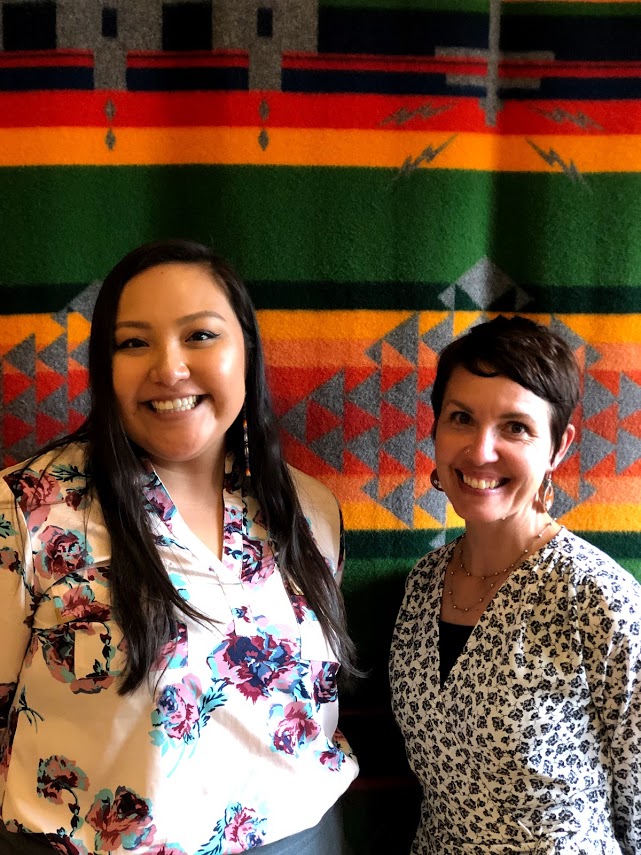NCUIH wears orange today for National Gun Violence Awareness Day on June 7.
A Long History of Gun Violence
Gun violence has a dark history for Natives in the United States. The deadliest mass shooting in U.S. history took place in 1890, when representatives of the U.S. government executed as many as 300 Native men, women, and children at Wounded Knee, South Dakota, for practicing Ghost Dancing, a spiritual tradition within our culture.
Guns were first introduced to Natives around the 1600s, when the weapons arrived with European colonizers. While guns were used against Native people with great frequency, we also adopted them as a means of hunting and war, marking the beginning of my community’s relationship with gun violence that continues in many different forms today.
Native communities have the highest rates of fatal police encounters. Our men, women and children are killed by cops with great frequency, most commonly in fatal shootings, but rarely make national news. A 2014 study by the Center on Juvenile and Criminal Justice reported that, per capita, Native Americans are more likely to be killed by police than any other demographic in the U.S. For instance, in 2017, Jason Pero, a 14-year-old Chippewa eighth grader, came home sick from school; by the end of the afternoon, he’d been shot dead in front of his own home by a police officer. The officer’s reasoning for shooting a 14-year-old boy twice was that he believed the teen had a knife and allegedly “lunged” at the officer with it. Jason reportedly served as a guide for his mother, who is blind.
In addition, gun violence in Native communities coincides with one of the country’s highest rates of death by suicide. In 2014, the president of the Oglala Sioux Tribe, John Yellow Bird Steele, declared an emergency on the Pine Ridge Reservation in South Dakota when more than 100 people ages 12 to 24 killed or attempted to kill themselves within a span of a few months. Today, Pine Ridge has a rate of death by suicide that is 150% higher than the national average. The commonality of this issue isn’t uncommon for other reservations as well, and the prevalence of guns throughout communities across the country does not lend to the cause of ending this crisis.
My father is Oglala Lakota. He grew up on the Pine Ridge Reservation, home to the poorest communities in America, near where Wounded Knee took place. There, the life expectancy rate today is the lowest in the Western hemisphere other than in Haiti: men are expected to live to 48 years old, and 52 for women. But local community members I know say life expectancy is more like 30 through 40, since people on the reservation often die so young from suicide, drugs, and alcohol. My father is 44. I’m 20 years old, which is middle-aged, given the life expectancy on Pine Ridge. According to the Rapid City Journal, FBI data showed murders in Pine Ridge alone jumped 90% from 2015 to 2016, with drugs and guns as two of the major factors.
Drugs like meth and heroin — along with the deaths from violence, overdoses, and suicide that come with them — are widespread on reservations. Today’s Native American youth are twice as likely to encounter sexual abuse, substance abuse, and domestic violence than other groups in the U.S.
Domestic violence rates in Native communities are especially troubling: Alaskan Native women, for example, experience such violence at a rate 10 times higher than anywhere else in the country, and 4 out of 5 Native women report having experienced violence in their lifetime. (Much of this violence against women in our communities, especially sexual violence, is committed by non-Natives.) The National Coalition Against Domestic Violence (NCADV) says that 19% of reported domestic violence cases committed against all women in the U.S. involve a weapon, and the presence of a gun in these situations increases the risk of homicide by almost 500%. Among all other women in the U.S., Native women are the second-most likely to die from homicide of any kind, according to Centers for Disease Control and Prevention.
Violence Against Women
According to Centers for Disease Control and Prevention (CDC) data, American Indian/Alaska Native women have the 2nd highest homicide rate, after Black women and followed by Hispanic women.
About “Wear Orange”
Orange is the color that Hadiya Pendleton’s friends wore in her honor when she was shot and killed in Chicago at the age of 15 — just one week after performing at President Obama’s 2nd inaugural parade in 2013. After her death, they asked us to stand up, speak out, and Wear Orange to raise awareness about gun violence.
Since then orange has been the defining color of the gun violence prevention movement. New York gun violence prevention advocate Erica Ford spearheaded orange as the color of peace through her work with her organization, Life Camp, Inc. Whether it’s worn by students in Montana, activists in New York, or Hadiya’s loved ones in Chicago, the color orange honors the more than 100 lives cut short and the hundreds more wounded by gun violence everyday.
Our movement gains momentum when gun sense activists come together to fight for a future free from gun violence. Wear Orange Weekend is an opportunity for us to show the country just how powerful we are.
Together, with hundreds of thousands of Americans, we turned America orange. But the work doesn’t end there. Everytown and our partner organizations continue to do life-saving work so that we can get closer to realizing a future free from gun violence. we wear orange to be seen, and demand that we be heard. Support us by going orange.



